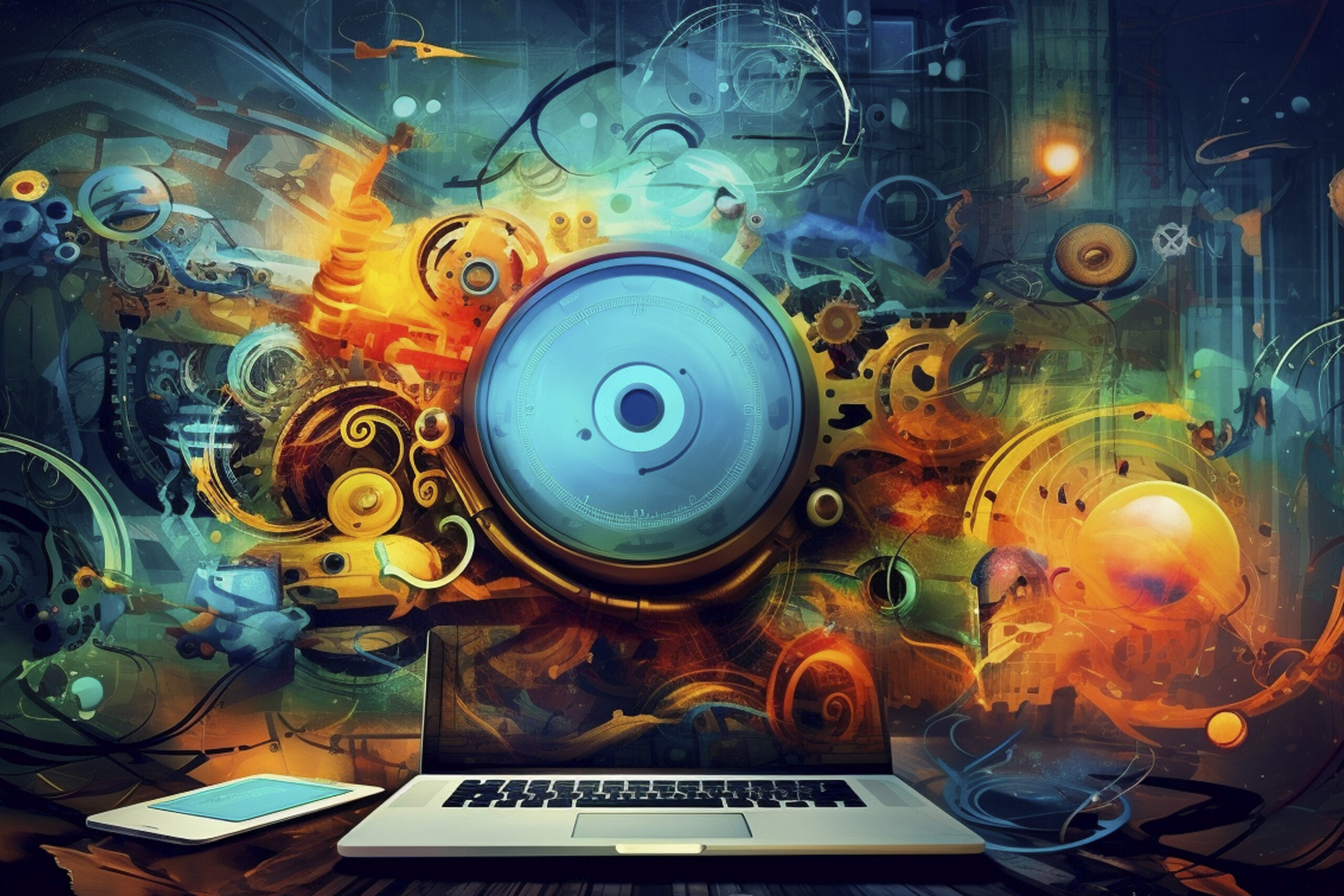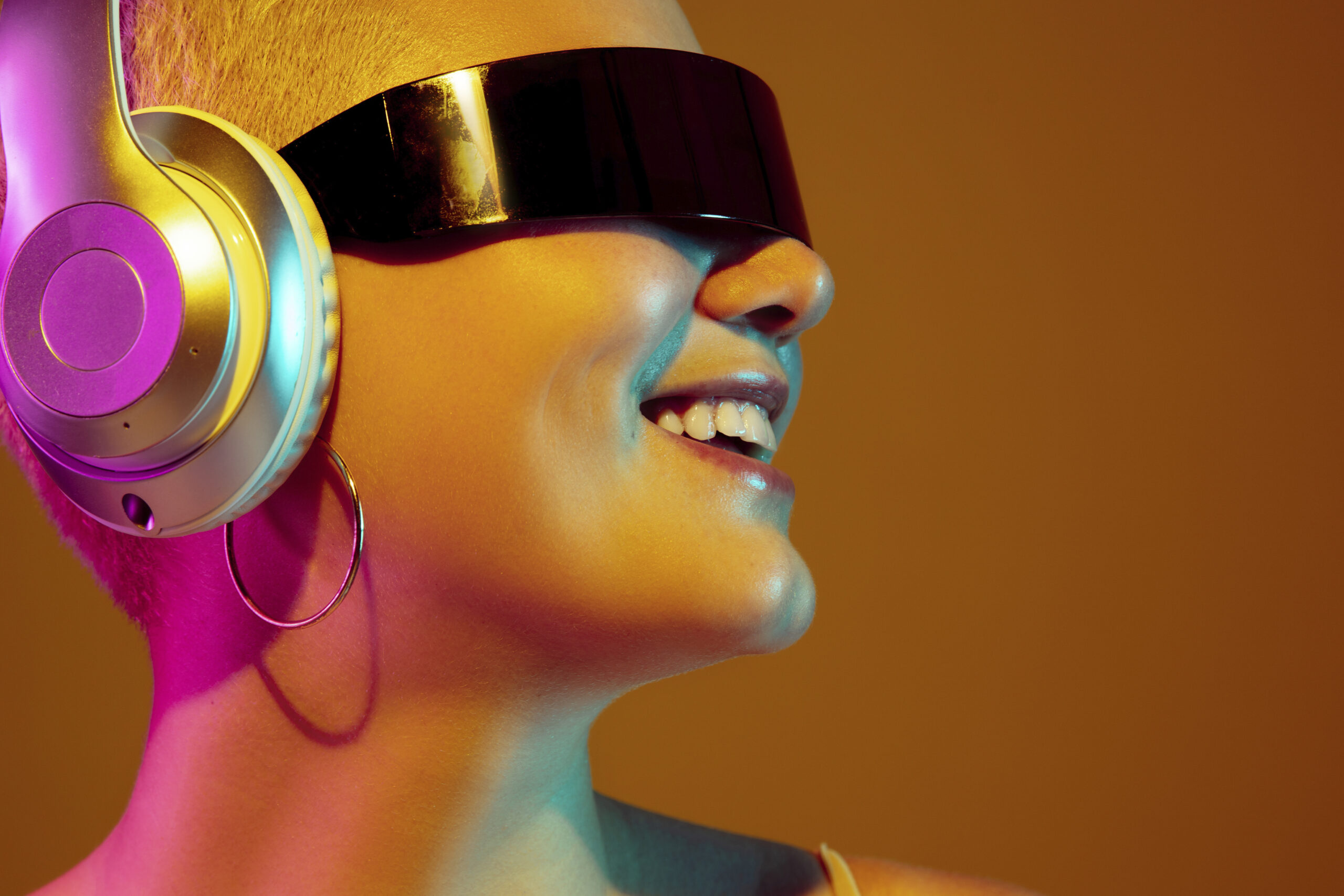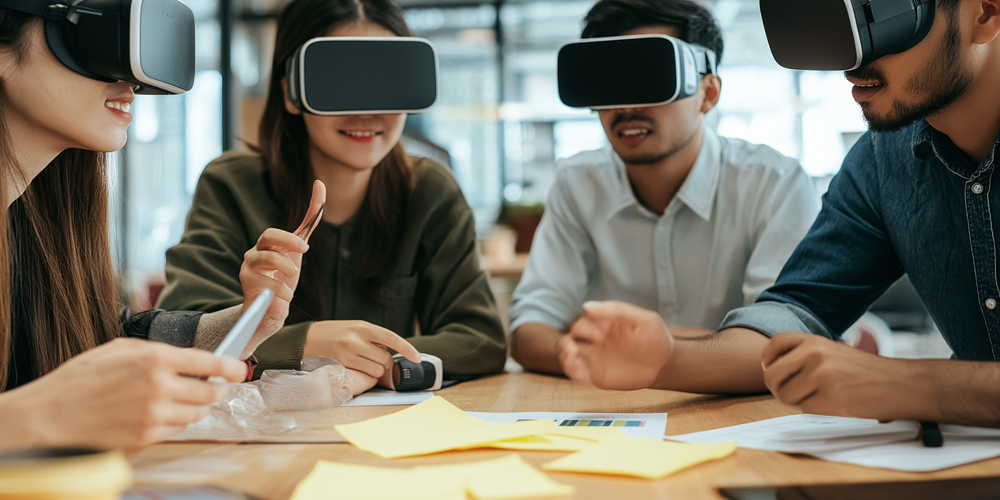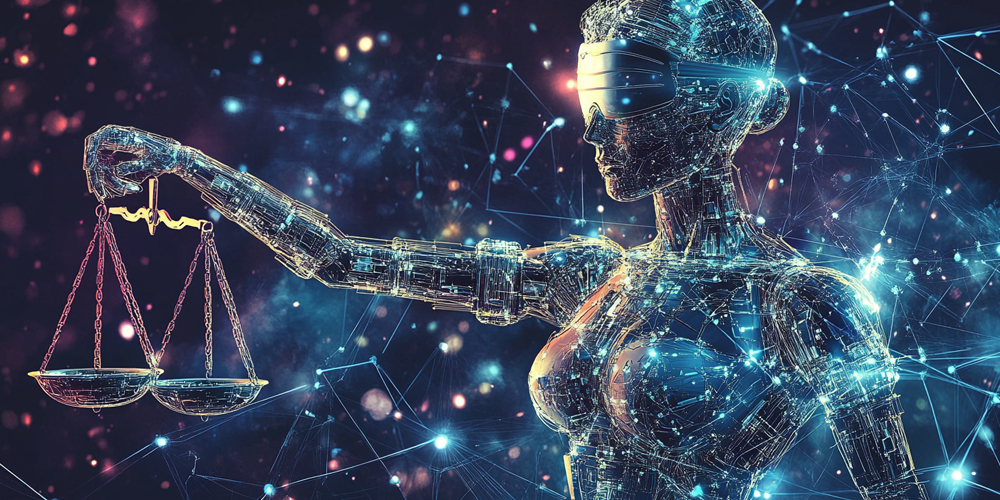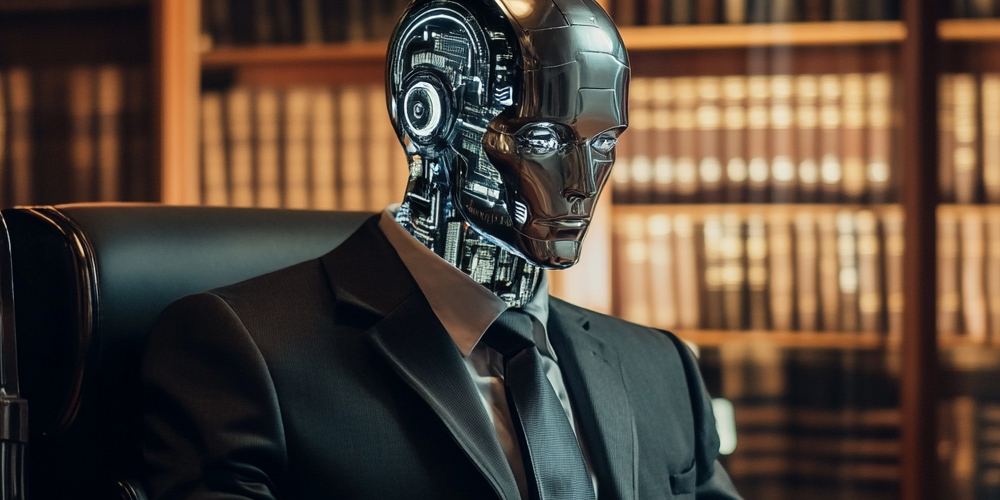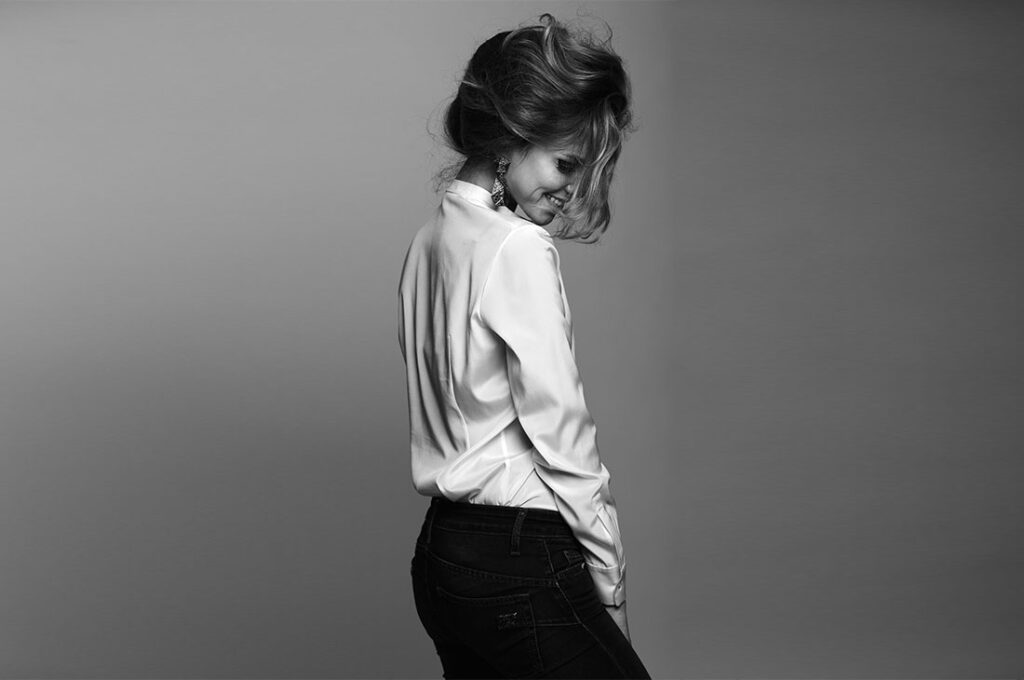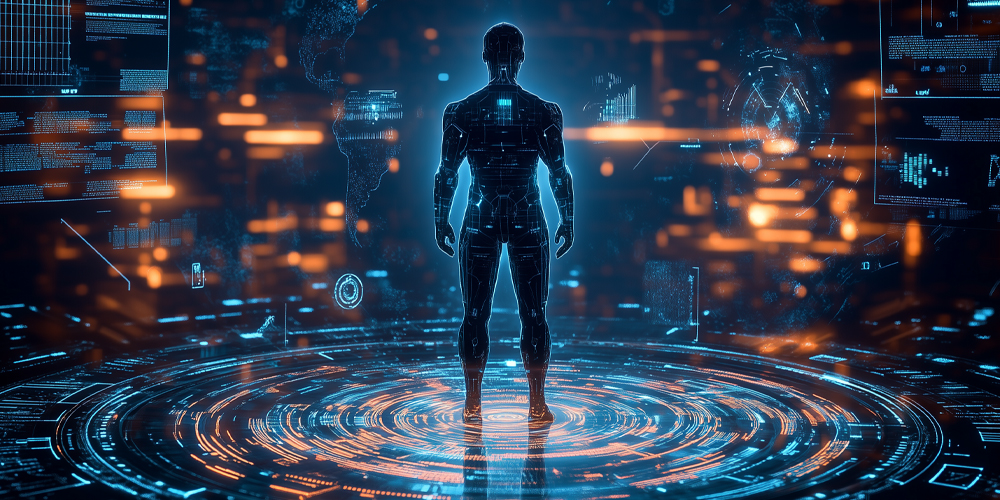AI and Creativity: How Artificial Intelligence is Changing Art, Music, and Content Creation
The world of artificial intelligence (AI) is rapidly expanding, and it is no longer limited to technical fields. AI is now making its mark on creative industries like art, music, and content creation. By automating tasks and offering new creative possibilities, AI is reshaping how we think about creativity. This article will explain how AI and creativity are transforming the creative industries and what it means for artists, musicians, and content creators.
AI in Art: New Frontiers of Creative Expression
The role of AI in art has grown significantly over the last few years. Artists are now using AI tools to create everything from digital paintings to sculptures. These tools allow artists to explore new styles and techniques, expanding the possibilities of what art can become. As a result, AI and creativity are providing artists with more freedom than ever before.
Generative Art: Creativity Through Algorithms
One of the most exciting developments in AI-driven art is generative art. Artists use AI algorithms to generate unique pieces of art. The AI takes input from the artist, such as colors or shapes, and creates a completely original work. Consequently, this fusion of AI and human creativity has led to stunning pieces that would have been nearly impossible to create by hand.
AI-Generated Sculptures
AI is also being used to create physical art, such as sculptures. Artists collaborate with AI systems to design intricate structures that can later be 3D-printed or sculpted by machines. Therefore, the complexity and detail of these designs challenge traditional notions of sculpture.
AI in Music: The Future of Sound
AI is transforming the way music is composed, produced, and consumed. By incorporating AI into music, the possibilities for sound are growing. This means that musicians and producers can now explore new creative directions more easily than before.
AI-Generated Music
One of the most interesting uses of AI in music is its ability to generate music from scratch. AI algorithms can compose original melodies and harmonies based on patterns they learn from existing music. As a result, musicians can experiment with new sounds and ideas that may not be possible without AI.
AI in Music Production
AI also plays an important role in music production. Producers use AI to mix and master tracks, analyze trends, and even suggest improvements to enhance the song’s quality. As a result, AI and creativity work together to make the production process more efficient and innovative.
AI in Content Creation: Efficiency Meets Creativity
AI is not just transforming art and music; it is also changing how we approach content creation. Writers, marketers, and content creators use AI to streamline their work and generate new ideas. This combination of AI and creativity allows creators to focus more on the artistic side of their projects.
AI-Generated Text
One of the most common uses of AI in content creation is generating text. AI tools can produce blog posts, articles, and even full-length books. These systems use natural language processing to create human-like text based on prompts provided by the user. Therefore, content creators can now produce large amounts of content in less time.
AI-Assisted Writing
AI is also helping writers edit and improve their work. With AI tools that check grammar, suggest improvements, and analyze tone, writers can produce cleaner and more engaging content. Consequently, AI is becoming an indispensable part of the writing process, making it easier for writers to maintain a high level of quality.
AI and the Democratization of Creativity
AI is democratizing creativity by making advanced tools accessible to a wider audience. With AI, more people can now participate in artistic and creative activities, regardless of their background or level of experience.
Breaking Down Barriers
Traditionally, creating professional-level art, music, or content required years of training and access to expensive resources. However, AI is changing this by providing easy-to-use tools that allow anyone to create. Whether it’s an artist generating images with AI or a musician using AI-generated melodies, AI and creativity are breaking down barriers to entry.
Collaborative Creativity
AI is also fostering collaboration between humans and machines. Rather than replacing human creativity, AI acts as a partner in the creative process. As a result, artists, musicians, and writers are using AI systems to explore new creative possibilities and push the boundaries of their work.
Ethical Considerations of AI in Creativity
Although AI offers exciting possibilities, it also raises ethical questions. For example, issues like ownership, originality, and the role of AI in creative industries are still being discussed. These ethical concerns need to be addressed as AI continues to evolve.
Who Owns AI-Generated Content?
One of the most important questions surrounding AI-generated content is who owns it. If AI creates a piece of music or art, who holds the rights? Is it the person who provided the input, or is it the AI itself? These questions are still being debated, and the answers are not yet clear.
The Role of AI in Human Creativity
Another concern is whether AI might diminish the value of human creativity. Some people worry that, as AI becomes more involved in creative fields, human creators might lose their jobs. However, others argue that AI is simply a tool to enhance human creativity, not replace it.
The Future of AI in Creativity
The future of AI in creative industries looks promising. As AI continues to evolve, we can expect even more collaboration between humans and machines. Artists, musicians, and content creators will have access to even more powerful tools that will allow them to push the boundaries of creativity further than ever before.
AI and Virtual Reality Art
One exciting area for future development is the integration of AI with virtual reality. Artists are already using AI to create immersive VR art experiences, where users can interact with AI-generated environments. This fusion of AI and VR opens up new possibilities for creative expression.
AI in Film and Animation
The film and animation industries are also exploring the potential of AI. Directors and animators are using AI to streamline production, generate special effects, and animate characters. As AI becomes more advanced, we may even see entirely AI-generated films in the future, which will further change the landscape of creative industries.
Conclusion
AI and creativity are transforming the creative landscape, offering new tools and possibilities for artists, musicians, and content creators. From generative art to AI-generated music and text, the role of AI in creativity is expanding rapidly. While ethical questions remain, the future of AI and creativity is bright, and we can expect even more innovation in the years to come.

